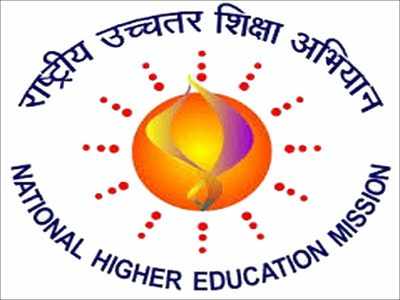- News
- Education News
- News
- Gujarat govt yet to appoint council members for law passed in 2017
Trending
This story is from August 21, 2019
Gujarat govt yet to appoint council members for law passed in 2017
The council will comprise of 32 members, including 15 ex-officio members, as per the Act.

Representational Image
AHMEDABAD: Nearly sixteen months later, the implementation of Gujarat State Higher Education Council Act (GSHECA), 2016 remains largely on paper. While the state government claims there is some progress in implementation of the new law, the appointments of council members remain pending.
"The process of selection of council members is going on and it will be completed shortly," said Anju Sharma, principal secretary, education.
The council will comprise of 32 members, including 15 ex-officio members, as per the Act.
The Act, which came into force in April 2017, aims to establish and incorporate a council called Gujarat State Higher Education Council. It would be a supreme body for higher education and shall be responsible for planned and coordinated development of higher education in the state, as per the Act. The stated aim of council formation is for bringing in uniformity in education.
Another senior official in the education department said important decisions are pending before the council due to lack of numbers. The appointment of members of executive committee for the council is also pending as a result, he further said.
The council members, yet to be appointed by state government, include eight university vice-chancellors, one Provost of private universities, five eminent persons, two eminent scholars, three eminent academicians and one-member secretary.
The non-appointment of council members for such a long time raises questions on the government's transparency for the Act, said an industry expert.
The council would also advise the state government in matters relating to higher education and oversee its development with perspective planning and monitoring. Earlier, financial assistance through grants under Rashtriya Shiksha Mission were directly given to colleges. These will now be routed through the council after the verification of each project.
There have been protests in the past as educationists feared that the new law would take away the autonomy of institutions in the state.
Gujarat chief minister holds the position of president and the education minister takes the post of vice-president in Gujarat State Higher Education Council, the Act states.
"The process of selection of council members is going on and it will be completed shortly," said Anju Sharma, principal secretary, education.
The council will comprise of 32 members, including 15 ex-officio members, as per the Act.
The Act, which came into force in April 2017, aims to establish and incorporate a council called Gujarat State Higher Education Council. It would be a supreme body for higher education and shall be responsible for planned and coordinated development of higher education in the state, as per the Act. The stated aim of council formation is for bringing in uniformity in education.
The council, according to Sharma, is functional with the active participation of ex-officio members.
Another senior official in the education department said important decisions are pending before the council due to lack of numbers. The appointment of members of executive committee for the council is also pending as a result, he further said.
The council members, yet to be appointed by state government, include eight university vice-chancellors, one Provost of private universities, five eminent persons, two eminent scholars, three eminent academicians and one-member secretary.
The non-appointment of council members for such a long time raises questions on the government's transparency for the Act, said an industry expert.
The council would also advise the state government in matters relating to higher education and oversee its development with perspective planning and monitoring. Earlier, financial assistance through grants under Rashtriya Shiksha Mission were directly given to colleges. These will now be routed through the council after the verification of each project.
There have been protests in the past as educationists feared that the new law would take away the autonomy of institutions in the state.
Gujarat chief minister holds the position of president and the education minister takes the post of vice-president in Gujarat State Higher Education Council, the Act states.
End of Article
FOLLOW US ON SOCIAL MEDIA











